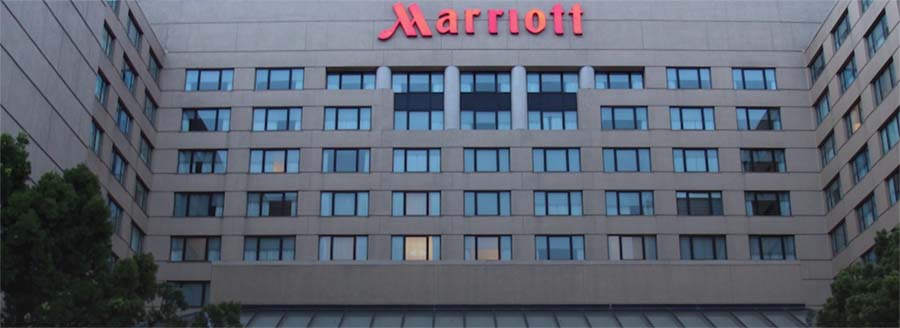Reprinted from Skift
The Delta variant’s impact on hotel bookings is likely short-lived, claims the CEO of the world’s largest hotel company.
After major hotel CEOs largely downplayed the potential impact the more contagious strain of the coronavirus might have on bookings, Marriott International CEO Anthony Capuano Thursday indicated the Delta variant did cause a downturn last month. Revenue per available rooms, the hotel industry’s key performance metric, was down 27 percent from 2019 levels across the company’s global network — a drop from the 23 percent decline seen in July.
The surge of Delta cases caused many companies to push their planned return to in-office work — and presumably the accompanying business travel that goes with it — to later in the year and even into 2022. But that isn’t ringing any public-facing alarm bells at Marriott.
“The trends seem to be stabilizing as we get into the early days of September,” Capuano said Thursday at the Bank of America Gaming and Lodging Conference.
See Marriott CEO Anthony Capuano at Skift Global Forum in NYC September 21-23
The steepest decline for Marriott came from China, where rooms revenue plummeted 50 percent from 2019 levels in August after being up 9 percent in July. That cratering of performance stemmed from the Delta outbreak and the country’s stringent lockdown measures in more than 150 markets.
Rooms revenue in the U.S. and Canada saw a less dramatic decline, going from 17 percent off 2019 levels in July to a 21 percent decline in August. That stems from the fact the U.S. economy remained largely open despite a significantly higher surge of newly reported cases than in China.
While Capuano didn’t give specific numbers around what constitutes as “stabilization,” there are signs things are beginning to turn around, at least in China. The most recent data shows revenue per available room was down 44 percent off 2019 levels — not ideal but an improvement from the 57 percent decline seen a week prior, according to STR.
China’s recovery trajectory has been an important guide for Marriott, as company leaders initially predicted they would see a full rebound there sometime this year. While there was a strong rebound in the spring, it was fleeting due to the Delta variant. That volatility has since spread to other parts of the world.
Major employers pushed their return to the office from right after Labor Day to October or even into next year. Microsoft Thursday decided to push its planned reopening of offices indefinitely until the variant was contained.
“Certainly, when you look at the potential impact of the Delta variant, [and] the impact that’s had on the timing of a return to the office, it is possible that we may not see business transient demand return as quickly as we might have hoped post-Labor Day,” Capuano said. “But again, it’s early to tell. The booking window for business transient is so short right now that it’s really tough to know how much of a bump in the road a delay of a return to the office might really represent.”
Capuano remained upbeat the U.S. Food & Drug Administration’s full approval of the Pfizer vaccine was a good thing for a company like Marriott. More companies have instated vaccine mandates now that at least one vaccine has full FDA approval compared to earlier emergency use authorization.
Marriott does not have one for its own employees, a company representative later told Skift.
The delayed return to the office this fall coupled with the largely mandated return to schools might seem like a recipe for disaster for hotels, especially during the middle of the week when corporate travel is normally at its peak.
It is harder to take a week off and work remotely if your child is still expected at school five days a week, meaning leisure travel is an unlikely source to offset the uncertain outlook on business travel.
But Capuano maintained an optimistic outlook on the blend of business and leisure travel — something he sees as a long-term legacy of the pandemic that can ultimately benefit the hotel industry.
“As we look into that crystal ball, it’s probably a little more opaque than any of us might like,” Capuano said. “I would say, broadly, we’re pleased with the momentum we’re seeing in the recovery, and our confidence continues to grow about a strong, long-term return of travel across all segments.”
Need help cleaning your hotel property or resort? We are the experts and happy to come out and provide a quote. Contact Bill (our owner) today.
.

